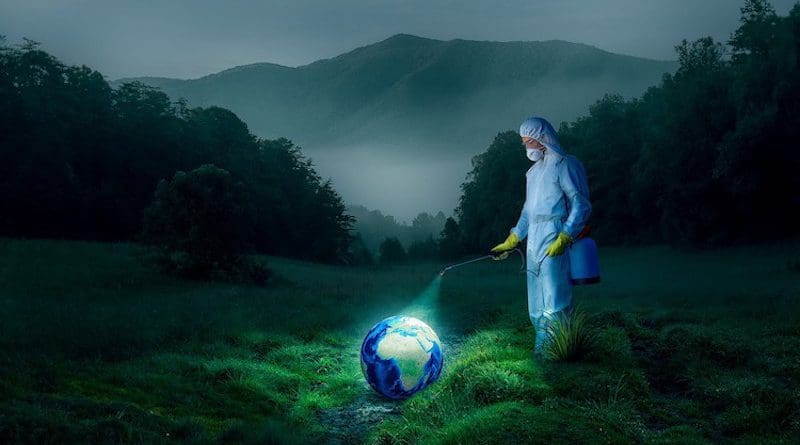COVID-19: Vaccine Equality And Global Politics – OpEd
As part of the global vaccination campaign against epidemic Covid-19, people around the world are waking up thinking that good times are ahead, the world is getting rid of the epidemic. But slowness in the vaccination programme, inequality in vaccine distribution, lack of inter-country coordination, vaccine politics, vaccine nationalism and racism, hypocrisy in the developed world, and the hope of a ‘vaccine for all’ has turned into despair.
Vaccine equity means that all people in the world, wherever they live, will enjoy equal access to vaccines, regardless of their economic or geographical location.
The United States, the European Union, and India have banned the export of the Corona vaccine or its raw materials. Adar Punewala, head of the Serum Institute of India, one of the world’s largest vaccine manufacturers, said clearly that no other country would get vaccine now. Vaccine manufacturers are on the verge of making unimaginable profits. Increasing revenue from vaccine sales has created at least a dozen new billionaires around the world. Pfizer sold 3.5 billion worth of vaccines in the first quarter of 2021 (January-March). But they want to give only 2 percent of their production to Covax. Moderna expects to sell 1.8 billion worth of vaccines by the end of the year.
The poor world is incapable of producing vaccines, but the Western world is reluctant to grant their vaccine’s intellectual property to these countries. It is a legal right that exists in different states so that the original creator is given a unique right to decide whether or not any party other than the original creator of a basic creation can use that creation. Intellectual property is usually valid for a limited period. After that period, the work became open to all. But the developed world, for a limited period of time, does not want to give away intellectual property to other poor countries in a bid to perpetuate its own vaccine authority. However, experts say that many countries in the world are able to produce vaccines on their own if they get intellectual property.
The death toll in rich countries was 59 percent of the world’s official deaths in January this year. Due to the high rate of vaccination, in May 2021, this rate stood at 15 percent of the total deaths in the world. But it is because of this vaccine inequality that 85% of the deaths that are now occurring in developing and poor countries are due to the fact that the developed world has reduced its mortality rate by vaccinating itself, and by vaccinating and depriving the poor world of vaccines.
This response cannot be accepted even in terms of morality. In the recent past, Bill Gates said, “Only rich countries will be ahead in the race for vaccine power.” As a result of the unequal distribution of vaccines, the mortality rate is increasing at an abnormally slow rate in poor countries. But the fact is everyone is under threat until everyone is vaccinated.
Vaccines have been piled up in most vaccine-producing countries. If not used soon, they will expire. Developed countries can donate to the poor world through Covax for logical reasons. Second, UNICEF fears that the way other vaccine-resistant vaccine activities have been hampered by Covid-19 will soon put the world at risk of many more diseases. As of last October, 692 crore doses of the Covid-19 vaccine have been completed worldwide. Of these, 45.1 percent of the world’s population has already completed two full doses. But the developed world is continuing its vaccination activities 20 times faster than the low-income countries.
However, in low-income countries, the vaccination rate is only 4.3 percent. Judging from a humane and responsible point of view, the developed world cannot give an answer. Fourth, vaccine equity will widen the rich-poor gap in the world, giving birth to new variants. Now is the time for the developed world to prove its sincerity towards the poor world.
*Jubeda Chowdhury is a freelance writer with a Master’s Degree in International Relations from the University of Dhaka.

